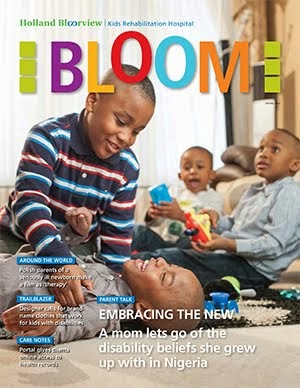Ben began some language, memory and other testing with a psychologist on Monday.
My hope is that it will show that he's capable of learning academics at his own pace. “I have already seen evidence that he can do academic work in the true sense of the word, even though it is obviously nowhere near a high-school level,” the psychologist told me.
We hope to have an IPRC to look at other possible school placements in late February. However, through my meetings with the school and board I’m not confident there will be many, if any, options.
I spoke to the parent of another student in Ben’s class and she had identical concerns. “But there aren’t any alternatives!” she said. This mom is a high-powered accountant. It made me feel better to know that I wasn’t the only one struggling to get my son an education.
And it got me thinking about who advocates for students who aren’t following the standard curriculum, to ensure that expectations are high. Who decides that the focus will be life skills and stops academic learning? Why is there no government-approved curriculum as there is for typical children? It seems the curriculum ends up being what the teacher or school want to teach, with no mechanism for accountability. What say do parents have in what is taught?
On an unrelated note, Disability Scoop is an excellent online resource for news about intellectual disability. Inside the World of Siblings is a great Disability Scoop interview with Don Meyer, director of the Sibling Support Project.
And on the topic of siblings, here’s an interesting blog by Tim Gort on Hopeful Parents: Siblings have their own special needs too.Tim has three daughters, two of whom have cerebral palsy.
And another sibling post from Ellen at Love that Max: Her brother’s keeper.
This professor of narrative medicine looks at Masculinity and Disability on Downtown Abbey, which runs on Masterpiece Theatre.
Here’s an interview with a psychiatrist about Autism and Holidays on the New York Times’ Well blog.
And finally, a heartbreaking story about a mom who became disabled due to medical error at the birth of her triplets. She has waited to see them for four-and-a-half years because her husband argues that seeing her would damage them: Disabled mom battles for visitation.

























1 comments:
Louise,
Since I started blogging on BLOOM (which was a learning curve in and of itself), I learned one thing: your intellect and compassion matches my own, but I can't physically keep up. Let's just say, "Having poor motor skills really sucks sometimes!!!"
Therefore, you keep punching those keys and I'll do my best to prioritize.
First, let's talk about education.
Yes, you're right in presuming that Ben's education is, to a large extent, designed and administered by his teachers and not the school board.
For example, when attending Sunnyview Public School, seventeen years ago, there were teachers who didn't do a thing to better educate those students with the most severe or complex disabilities. Going to school was equivalent to attending a social event.
However, there were a few outstanding educators who were determined to give us the education we deserved. They took the time to truly under how children with disabilities learn. For instance, my grade 5 teacher focued on the following four subjects throughout the academic year: math, reading, phonics, and history. We also had math homework every night. For, he understood that a disabled child learn, but required much repetition, twice as much as a non-disabled student. Needless to say, "I learned!!!"
The following year, in grade 6, my new teacher focused on writing. Hence, I learned how to compose a journal and write a story, but there was no mention of essays until highshool. My grade seven and eight teacher, as I had the same women for two years, was the worst. I learned more from watching TV. A few years later, after graduation, my mom fan into the my fifth grade teather, the man who worked so hard to educate me, he said, "I wanted so desperately to continue teaching your son, but it the principal who decides which teacher is assigned to each grade." He begged and pleaded, but it was out of his hands.
Therefore, the question still remains how do parents best educate there children in accordance with our current range of options?
Although my answer is not simple, I believe it is the best way to assist this generation of kids.
If you can afford it, send your child to Catholic school and lobby for the proper supports within the community. This will guarantee them a better education, access to the same teacher, for eight years, in accordance with a specific teacher, as each educator has his or her speciality. This will also further the goal of inclusion, as each teacher will have no choice but to get to know you and your child.
Believe me, there is a reason why kids who attend catholic school are head and shoulders above the rest.
Moreover, regardless of what school your child attends, we can begin educating disabled youth ourselves, as there are volunters, parents, and educators reading this blog --myself included. The Library at Holland Bloorview is empty on the weekends. No one else is going to go out of their way to significantly educate these kids.
Matt Kamaratakis
Post a Comment